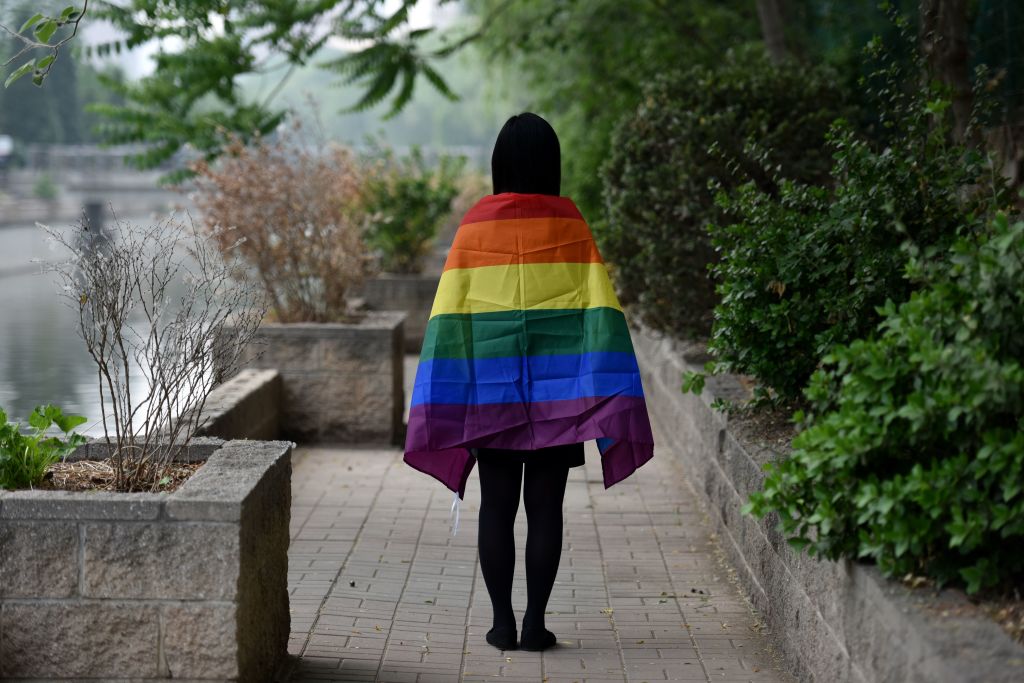
A prominent LGBTQ+ center in China is closing down after 15 years, another sign of the tightening of space for sexual orientation-focused organizations under President Xi Jinping.
In a statement on its WeChat account on Monday, the Beijing LGBT Center said it was terminating its operations effective immediately, saying only that the closing was due to a “force majeure.”
The center couldn’t be immediately reached for comment Tuesday morning, but one former volunteer for the organization told Bloomberg News that the closure was as a result of long-standing pressure. That person didn’t specify the exact source of the pressure, saying it came from different quarters, including at times from the center’s neighbors.
The organization’s 2022 report laid out some of the challenges more explicitly, saying: “We experienced negative things such as forced relocation, canceled or postponed work for various reasons, and vilification of our team and members. These events have brought us to a collective emotional low, and it would be disingenuous to say that we are still ‘passionate’ about our work in this situation.”
A post announcing they were shutting down attracted more than 6,083 likes and 3,200 reposts on Weibo as of Tuesday morning. Many of the comments expressed sadness the organization was shutting down and how queer culture and presence in Chinese society were being erased.
China’s LGBTQ community has been coming under increased political scrutiny as Xi promotes more conservative and conformist values around gender and sexual identity. Shanghai’s Pride organizers announced in 2020 that they would cease all activities, without giving a reason. Dozens of WeChat accounts run by LGBTQ groups at leading universities were blocked then deleted in 2021, prompting outrage. Some had tens of thousands of followers.
Read More: How Transgender People in China Are Cornered Into a Dangerous Medical Black Market
Last summer, two students at one of China’s most prestigious universities were issued warnings for distributing LGBTQ rainbow flags, highlighting how the nation’s increasing intolerance for sexual diversity is extending further into campus life. State media in recent years has published criticism of gender non-conforming men.
“The loss of the Center is huge,” said Darius Longarino, a senior fellow at Yale Law School’s Paul Tsai China Center, and an expert on LGBTQ issues in China. “It was a major force for creating community in physical space and online, and for raising visibility throughout society.”
Longarino said that while it’s hard to know what specific event, if any, precipitated the closing, it is known that authorities have been making it more and more difficult for civil society organizations to survive, directly pressuring and harassing them.
“Besides, shrinking space for civil society in general, I think there’s evidence showing that authorities have become more hostile to the LGBT movement because they view it as a foreign influence that ‘misleads’ youth,” he added.
Germany-based Chinese filmmaker Fan Popo described the center as an “iconic” organization that’s “a home and shelter for many LGBT who are oppressed.” “Such an organization is the base of the movement for LGBT rights because they have physical space,” said Fan, whose works frequently include gay themes.
The center provided a range of activities including mental health counseling and campaigns, and HIV testing. It also served as an advocacy organization, conducted nationwide surveys on LGBTQ issues and played an important role in defending legal rights including leading a lawsuit against a practitioner of electroshock conversion therapy.
The former volunteer said he felt sadness on hearing the news of the center’s demise. He said it was a beacon of sorts for gay people in China, and especially in Beijing, adding that he and other members of the community now don’t know where to turn to. We’ve lost a home, he added.
Shanghai-born journalist Jinghua Qian, who is based in Australia and writes frequently on LGBT issues said in a Twitter post that while the community in China is resourceful and could find a way to work around limitations, sometimes that approach is just too subtle. “A secret handshake can’t replace a lighthouse,” they wrote.
—With assistance by Colum Murphy, Linda Lew and Xiao Zibang
(Updates with filmmaker comment in 11th paragraph. An earlier version corrected speaker’s preferred pronoun in final paragraph.)
More Must-Reads from TIME
- Cybersecurity Experts Are Sounding the Alarm on DOGE
- Meet the 2025 Women of the Year
- The Harsh Truth About Disability Inclusion
- Why Do More Young Adults Have Cancer?
- Colman Domingo Leads With Radical Love
- How to Get Better at Doing Things Alone
- Michelle Zauner Stares Down the Darkness
Contact us at letters@time.com